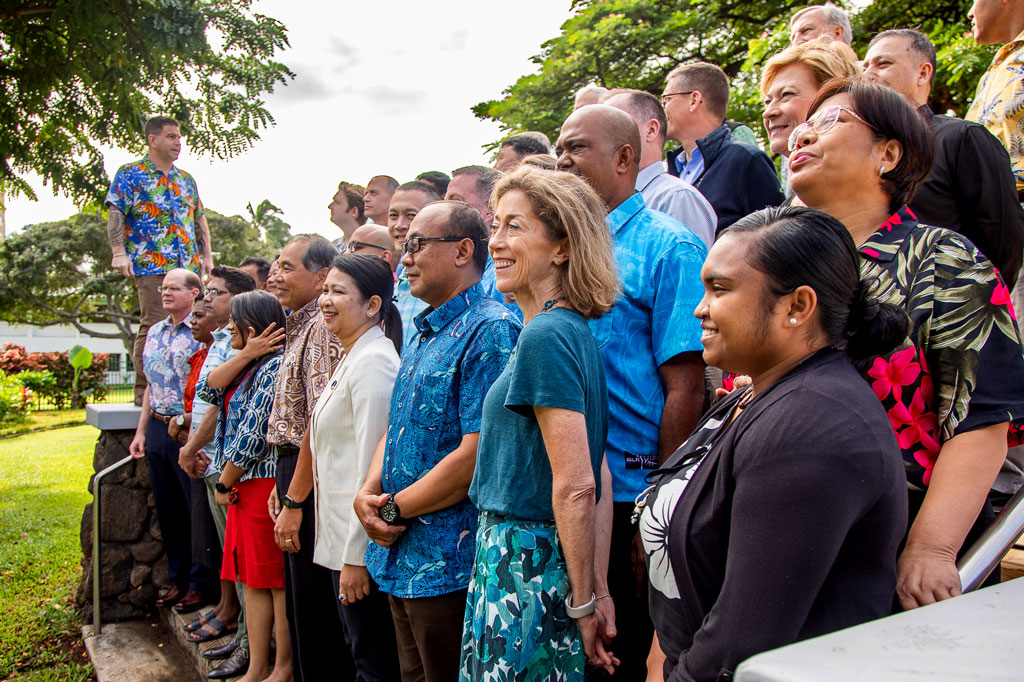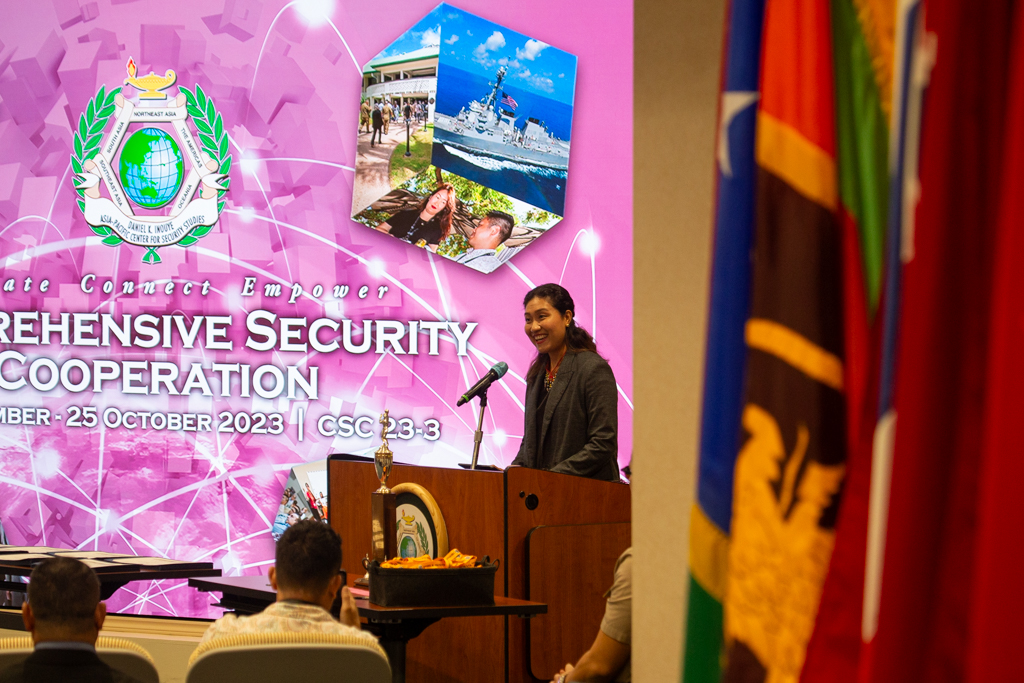 An alumna of DKI APCSS’ Advanced Security Cooperation course (2012-1), Ananda Devi Domingo-Almase, DPA, has written a research paper on “Diplomatic Engagement and Negotiated Agreement Between Philippines and China: A Constructive-Realist Approach in Post-Arbitration.” This paper is now available as part of our “Alumni Perspectives” publications.
An alumna of DKI APCSS’ Advanced Security Cooperation course (2012-1), Ananda Devi Domingo-Almase, DPA, has written a research paper on “Diplomatic Engagement and Negotiated Agreement Between Philippines and China: A Constructive-Realist Approach in Post-Arbitration.” This paper is now available as part of our “Alumni Perspectives” publications.
In her paper, she illustrates the interplay of multiple forces and drivers of security in the region of the disputed waters through causal loop diagrams (CLDs). This analysis depicts the strategic interventions, chain reactions, and cyclical directions of complex security conditions.
According to Domingo-Almase, “the significance of the academic analysis is that it communicates a frame of thinking of how a security dilemma like the SCS issue is understood from a comprehensive perspective, and intended to be resolved through balanced approaches to durable peace and security in the region.”
This study was presented by the author as speaker at the International Conference on Defense Strategies and Regional Security, with the theme “Will there be peace in Asia Pacific in 2017?,” which was organized by the German-Southeast Asian Center of Excellence for Public Policy and Good Governance (CPG) at Sukosol Hotel in Bangkok, Thailand in December 2016.
Diplomatic Engagement and Negotiated Agreement Between Philippines and China: A Constructive-Realist Approach in Post-Arbitration” is available online at this link. https://dkiapcss.edu/wp-content/uploads/2017/04/Diplomatic-Engagement-and-Negotiated-Agreement-final.pdf
Ananda Devi Domingo-Almase, DPA, is a Professor III at the National Defense College of the Philippines and a consultant for the President of the Philippine Public Safety College. She is a member of the National Security Committee of the Philippine Council for Foreign Relations. The views expressed in this paper are those of the author and do not reflect the official policy of DKI APCSS or the U.S. Government.
-END-









Leave A Comment